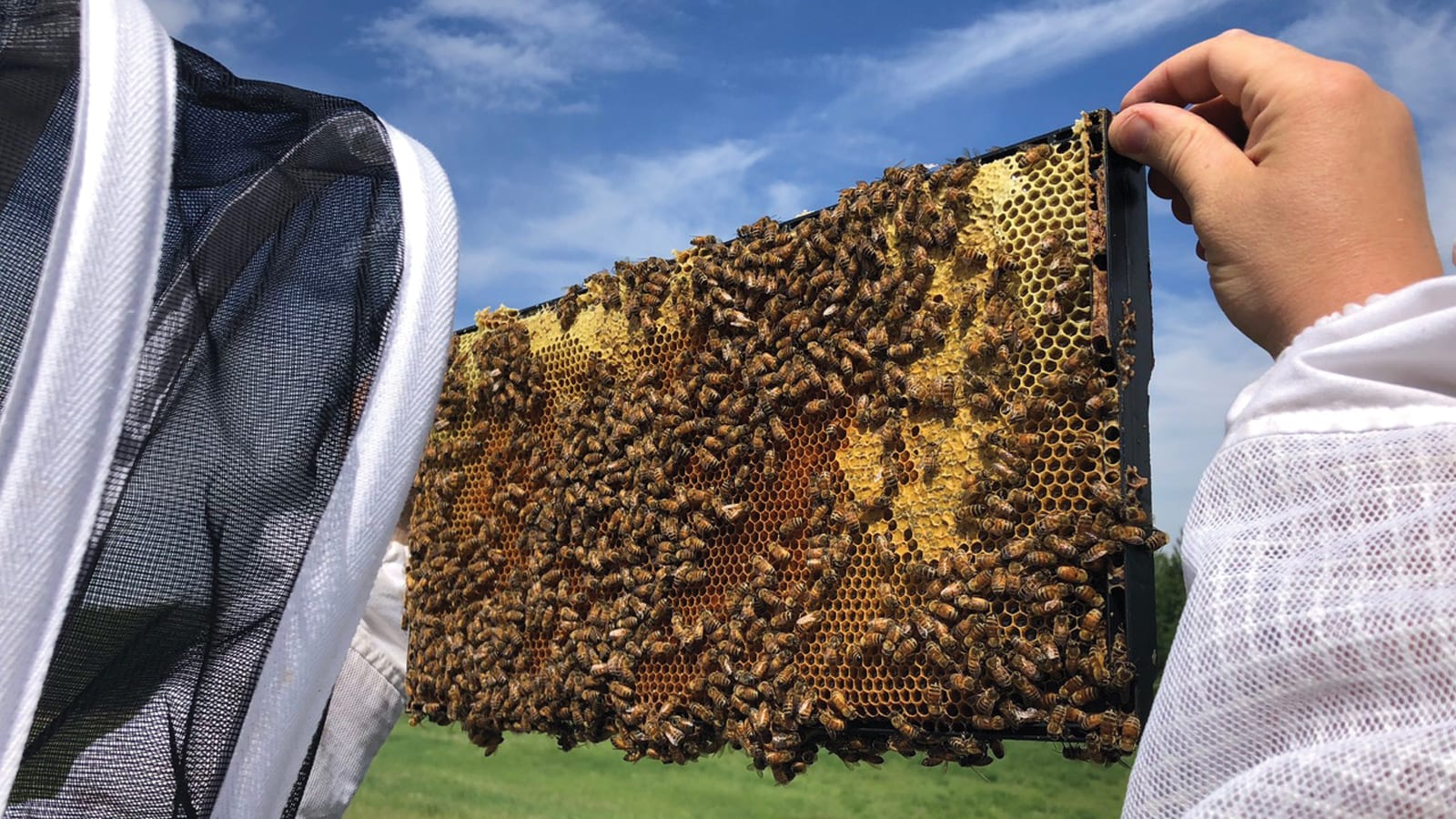They may be small but bees are very big in Terri Vaughan’s world. The AMA member co-owns The Humble Bee, a Spruce Grove company that sells raw honey, beeswax wraps and candles. Her buzzing buddies also use their talents to make the world a better place—while inspiring Terri to do the same.
And it all started with a bout of leaky gut.
Five years ago, her husband, Jeff, was diagnosed with an auto-immune disorder. Treating it necessitated a restricted diet. Sugar was one of Jeff ’s triggers, but raw honey proved safe for him to consume. Locally produced honey, however, was scarce, so the Vaughans decided to take up beekeeping.
“It meant we’d get our own honey,” Terri says, “but after learning what bees do for the environment, it meant we could do our part for the Earth as well.” The couple took several beekeeping courses, then worked with a local mentor to help establish their first two hives.
Today, the Vaughans’ dozen bright bee boxes are abuzz with tiny family members. “Jeff calls them his girls,” Terri laughs, not- ing how bees come to recognize their keepers’ scents and faces. “He can walk through the hives without wearing a bee jacket.”
Bees aren’t just smart, they’re nature’s superheroes. Through their work as pollinators, it’s estimated that wild bees are responsible for one in three bites of food on Canadian tables, and they help maintain ecological balance overall. The Vaughans’ small brood has already had a huge impact on their farm. “Our apple trees didn’t blossom until the bees arrived. And my mother-in-law’s raspberries just bloomed recently,” Terri says. Because bees can forage over several kilometres, the fields and gardens surrounding their hives have also benefited from pollination.
That’s why the decline of bees— specifically native bees—should be of great public concern. Eight wild bee species are currently listed on Canada’s species at risk registry, while several others have “special concern” status. The implications of losing more species to climate change and disease are huge for Canada and the world.
To educate younger generations about the importance of bees, Terri developed a school lesson plan and in-class presentation. Local kids can don beekeeping gear and get up close to live bees in an observation hive.
Even after four years of bee- keeping, she learns something new about these tiny warriors almost daily. “They are amazing creatures and just inspire me to try to make a difference.”
To find out more about The Humble Bee, visit facebook.com/thehumblebee19.
HOW TO BEE BETTER
Three ways to help bees this summer
Get a bee house: These structures help protect bee larvae. Get one made of natural wood and place it 15 centimetres above the ground in a flowered area. Your garden will grow better for it.
Leave the dandelions: These weeds are the first source of food for bees in the spring. If you must remove them, pull dandelions instead of using herbicides to keep the area poison-free.
Buy from local beekeepers: You’ll get the health benefits of unpasteurized raw honey (it has antioxidant and antibacterial properties) while supporting local pollination and producers.
TELL US!
Know an AMA member with a cool story? Let us know at amainsider@ama.ab.ca and we might include it in a future issue of AMA Insider magazine.
